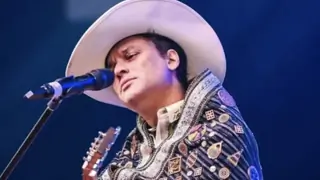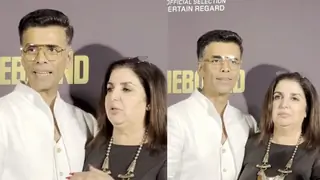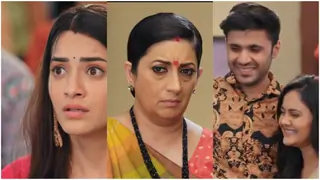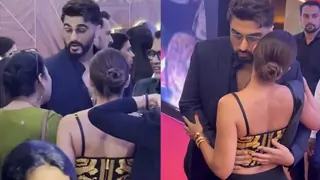'I like focusing on one or two good projects'
VIJAY DANDIGE (Contributor)
14 April 2007 WHEN SHE is walking on the roads or goes out shopping, people don't just recognise her. They go up to her and start arguing heatedly: 'Why did they reject Prajakta? How come Pradeep got selected and Sunil didn't?
When are they going to be fair in their choices…?' and on and on and on.
Strollers nearby get flummoxed, but Mini Mathur, anchor of Indian Idol, a reality TV show that has been grabbing Indian audiences by their lapels, is by now quite used to this kind spirited heckling. 'They're not talking about me; they're talking about the content of the show,' she says bursting into laughter. 'It's got people really involved.'
Indian Idol was brought to India by Sony Entertainment Television, as part of the popular show format, titled 'Idol', that has created television history across the world. The first season of show gave India its first ever Indian Idol — Abhijeet Sawant and also tapped hidden musical talent from the nation's small towns.
Indian Idol created a platform, which is now the goal of every aspiring contestant who dreams of becoming a singer. With a jury in the form of Sonu Nigam, Udit Narayan, Alisha Chinoy and Javed Akhtar and the hosts Mini Mathur and another co-host, Indian Idol has become a rage for music lovers and television viewers across the subcontinent.
Since the show's launch three years ago, Mini Mathur has been the one constant co-host anchoring the show. She's now a celebrity in her own right. She worked with Hindustan Thompson Associates before she started as VJ for India's No 1 music channel MTV. She has also hosted shows like Big Picture, MTV 123, MTV Gaana Masti, a spoof on film songs and international videos and many more.
Indian Idol's third season goes on air on May 5 and the finale is set for September 29. In Dubai for the last legs of auditions, Mini Mathur chatted with City Times during a break in her hectic schedule.
What prompted the decision to include Dubai in the show?
In the first two seasons, we got a lot of appreciation, a lot of feedback. People here and internationally were watching, and they got involved in the show. So, we realised it was a pity we were limiting our auditions to only certain cities. A lot of talent could not reach us for whatever reasons. So, this time we increased it to 12 cities in India and decided upon Dubai and London. Dubai of course is our first ever international location.
How were the participants here?
For two days we interacted with participants here. And it was wonderful to see that they felt like being a part of it. They were really active, cheerful and excited. Even people who have not learnt music wanted to be connected to the show. The mood, I must say, however, was not very competitive but there are some very good singers. Participants came from Abu Dhabi, Sharjah, all across the UAE.
Did you notice any difference between Dubai participants and those back home?
Yeah, there was a difference in the sense that a lot of them were trying it for the first time. I don't think they have had an opportunity or a platform like this, as Indians back home have. But they were enthusiastic, and came to audition for different reasons: some because they watched the show and enjoyed it, some because they are serious about music, or some because they just need to be connected to India in some way.
And how do you rate them?
Well, that was really for the judges to decide. But from what I saw there are two or three very good singers here and I'm sure they will make it to the top rounds. Then there were some who just turned up to pass the time. But it is the same story in every city.
How has the show changed since the first season?
The format has remained the same. But what has changed is the fact that when you have different contestants, their stories are different, talents are different, the way they react is different. So, the Idol is their story, about their craft. It's about being a walk-in contestant to being famous as Abhijeet Sawant, the first Idol winner. Plus we got new judges, Alisha Chinoy, Udit Narayan and Javed Akhtar, all stalwarts. They give their own twist to the show. Sometimes they agree, sometimes they don't, and that makes the show more interesting. I have a new co-host, Hussein, who is joining the show this season. My chemistry with him will be totally different, on a perky, friendly note. All of this is going to make the show bigger, better...
You have been there for three years, while others have come and gone. How do you feel about it?
Oh, I feel very happy, loved and appreciated to be back for the third season. Frankly, I would've felt bad had I not been back, because I believe I have done a decent enough job. In a way it's my show. I feel emotionally connected with it.
How do you build a rapport with your co-host?
Hussein is joining the show now; I have not worked with him before. But he's a well-loved actor within the TV industry. So it's a bit difficult not to like somebody like him. There's a very easy camaraderie between the two of us, and it shows on screen. My biggest fear while co-hosting a show is that it should never be a game of one-upmanship, because I think that is the tackiest thing one can do on TV. There has to be an even balance between both the co-hosts. And it is very important especially in a show like this to have great chemistry because we're literally coaching the contestants as a team.
What sort of participant grabs your interest?
Somebody who has a sense of humour, has personality, versatility, and someone who doesn't have a very city-bred background. That is, someone who can show growth in person as well as in his music.
How come Javed Akhtar has been selected as a judge, because his name wasn't mentioned earlier?
I think he came with us to a couple of cities as a guest jury. And he was so good on the show that it seemed right to have him on the panel permanently. I guess that's what happened.
You have been known to provide emotional anchor to participants. How did that come about? Did you cultivate it deliberately?
Not really. I've been accused of being emotional on the show. As I laughingly tell journalists, the role of an anchor is the role of human handkerchief. When contestants want to laugh, cry, sob, or blow their nose, we're just there all the time, to be with them when they are away from home and see them through the various stages. And there are times when they really need a shoulder to cry on. And because you spend so much time with them, across all seasons, you just feel so attached to them. And inevitably, when one contestant has to leave, you can't help but think: 'Oh, I'm not going to see that person again.' Some of them are in it to be the Idol, some are in it for fame, or money or to prove something… and you know all that. So automatically, you tend to become emotional even when you don't want to because you are supposed to be impartial. And I can't remain impartial. I get connected with people and I react the way I want to react.
What has been your most amazing story vis--vis the participants?
You see, we have contestants from all walks of life. We got sweepers, autorikshwallas, chatwallas, tailors, carpenters, sabjiwalla... you name it. I think to see them sitting on the same platform with a student who is a software engineer, or a doctor is in some way a full circle, because India has social inequality. And I feel happy and touched to see they are competing for the same title, irrespective of what they do, where they come from or their economic status. So, we had this Ravinder Ravi, a house painter who made it to the top 6 of the first Indian Idol show. The other day I was walking across my street, and a car stopped, and out stepped Ravinder Ravi. And he said to me, 'Mini madam, should I give you a lift?' It was his own car; he had five gold chains around his neck and two cell phones. I can't tell you how that made me feel. It was fantastic, somebody was probably earning Rs 200 (about Dh16) a day was now driving his own car. For me that was the most amazing story connected with the Idol show. To see that people have made something of their lives — that's very touching.
And what was the most ridiculous story?
There's a man who is very old. His name is Arun Kumar…everyone knows him. He forged his certificates and came as a contestant in the first season. He's got long hair and dresses up in a kind Dev Anand style. He earned the nickname: the 'wada-paav uncle' because of his weird hairstyles. He's old, and our age limit is 30. So, he produced these fake certificates saying he was 29 or something. And he was a ridiculously bad singer. After being rejected, he came for the second season, this time giving a story that the one who competed last time was his twin. And he came again this season, giving the line that he has been invited. Nobody knows who invited him. Nobody has invited him. So, I declared him as the 'lucky mascot of Indian Idol' because he's always there.
And what about the nasty participants?
Yes, there have been a few. They are the people who eventually don't make it. You see, everybody who walks in through the door believes they have the capability to be the Idol. Nobody walks in thinking, 'I'm a loser.' We have our share of people who rave and rant: 'Why are not the judges fair?' or 'Why are the judges talking rudely?' etc. But I suppose that goes with the territory. And I just find that upsetting because you cannot counsel each upset person. I wish I could tell such people: 'This is the not end of the world. You can move along and learn something.'
What kind of impact has the show had on you, personally and professionally?
Quite a lot. I'm not the type to do 15 shows at the same time. I like focusing on one or two good projects. I get overtaken by what I am doing at the moment. It spills into my life. But professionally, I'm very happy because Indian Idol for me is the culmination of all my experience as an anchor. I was with MTV for 4 years; I've done travel shows and game shows. This sort of thing just brought it all together. And what is required of an anchor here because of the four stages is completely different. You go from being in jeans and T-shirt, running around people, into this fantastic night at the end of the finale, which is the biggest studio-based show of all. So, as an anchor, it gives you so much scope to perform, to connect.
What is the secret behind your wardrobe, the fabulous dresses you wear in the show?
I've an able stylist named Rishika. We sit together and figure out what kind of looks we want to do. As you know, in the first and second seasons my outfits got appreciated. I've a couple of designer friends who also love the show and they love to design for me. There is Sunil Verma, Manish Malhotra, Amber and Shirin, Tarun Tahilyani. They did my wardrobe last year too. We do a mix and match because the stages require you to dress differently. It starts with a sort of basic clothing, and goes on to designer stuff towards the end. I think it is important for any presenter to be impressive, but at the same time, I think clothes should not overshadow your personality.
Jennifer Hudson, the American Idol finalist, not only went on to bag a movie role but also won the Golden Globe and Oscar for it. So, where is that kind of story about Indian Idol?
You're right. Neither Abhijeet Sawant nor Sandeep Acharya nor Karunya has joined films. But I hope they will. American Idol is different. You can get scope there. In India, if you are a playback singer, it's very difficult to break into the acting circuit. India has its own rules and its own way of functioning. Still, our winners don't go empty-handed. They get a crore (about Dh8,33300) worth of contracts, a music album with Sony BMG, which is a big deal for any aspiring singer, a car and they get to be celebrities instantly, overnight. Now that's not so bad... not bad at all.





















